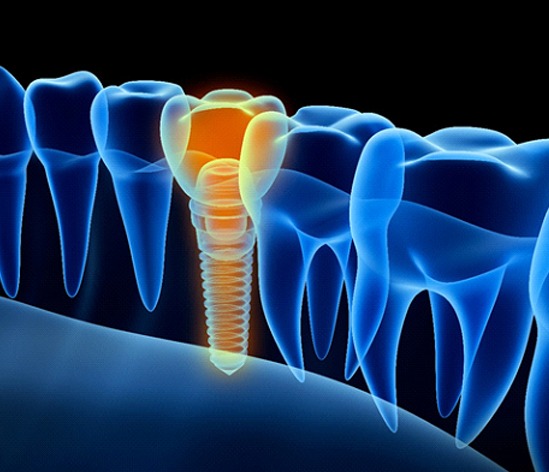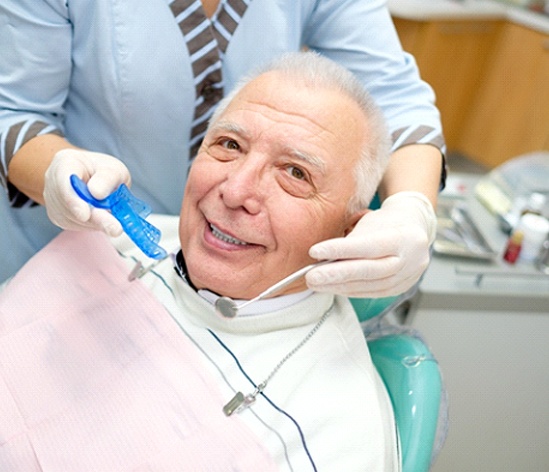Dental Implant Failure and Salvage
Your Tooth Replacement Could Be Saved
In general, dental implants are very successful when placed by a trained professional. Even in the long-term their success rates hover between 95% and 98%, making them extremely reliable. However, there are rare occasions where dental implants can fail and require removal to treat other dental problems, such as an infection. The sooner you notice discomfort or other issues with your dental implant, the earlier you should get in touch with our office as we may be able to salvage it.

Why Do Dental Implants Fail?

One of the most common reasons of dental implant failure is an infection known as peri-implantitis. This can develop due to poor oral hygiene. As a result of significant plaque buildup, bacteria destroy the connective tissue around the implant. This weakens the supporting jawbone structure, causing the implant to loosen and eventually fall out completely.
Alternatively, dental implants can fail due to physical injury/trauma to the face. Failure can also occur if the implant does not properly osseointegrate with the bone tissue, but this issue is relatively rare.
Symptoms of Failed Dental Implants

Remember that dental implant failure can occur whether you’ve just recently received your dental implant or had it for many years. For example, in cases where early dental implant failure occurs, it’s because an issue developed during the initial healing process, while late dental implant failure is typically due to external factors like poor oral hygiene or facial injury.
Thankfully, the symptoms for dental implant failure are relatively easy to spot regardless of when your implants were placed. These symptoms include:
- Unusual or severe discomfort – Soreness is typical around the implant immediately after surgery, but it should feel comfortable and natural once the treatment site has healed.
- Implant looseness – In some cases, it’s only the restoration that needs adjustment if you notice looseness. However, it could also be the implant, so be sure to call if you notice this issue.
- Bleeding and swelling – These are the typical signs an infection has developed. Pus may also be present.
- Chewing becomes difficult – Once you receive your implant restoration, eating food shouldn’t be a problem.
How Dental Implant Salvage Works

Even if you aren’t sure that you’re experiencing symptoms of dental implant failure in Longmont, you should give our office a call. The sooner we can examine your dental implant and confirm any issues, the sooner we can provide treatment to prevent your issue from worsening if there is one present. Generally speaking, treatments designed to address problems are cheaper to complete when complications are only in their earliest stages.
At your appointment, we’ll examine your mouth, take note of your symptoms, then discuss your treatment options. Depending on your condition, we may be able to save your dental implant either through a deep cleaning, antibiotic therapy, or a combination of other infection control measures.
If the damage to your implant is severe, we may need to remove it entirely. Once your oral health is restored, we may recommend a bone graft to replace lost bone tissue as well as gum disease treatment if necessary. After you’ve healed, we’ll revisit the idea of placing another dental implant.
